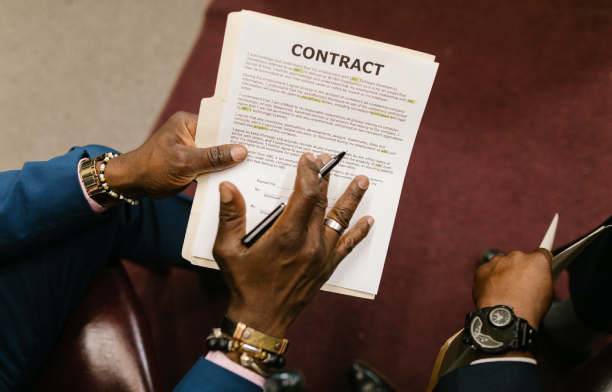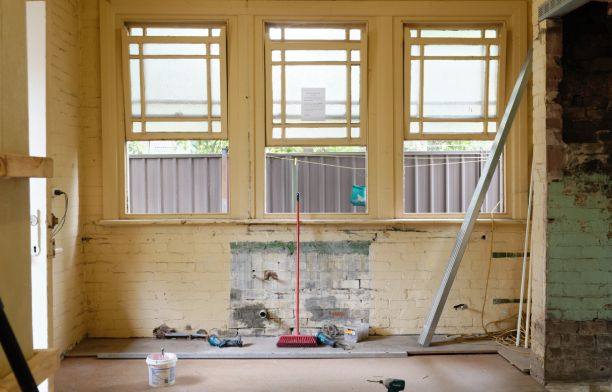Wholesale Real Estate: Tips for Beginners & Pros
In the current economic times, having a diversified investment portfolio is a key way to growing your wealth. If you're a real estate investor and would like to explore a different sector in the real estate industry, wholesale real estate is an area that offers a unique opportunity to make profit by connecting motivated sellers with eager buyers.

Regardless of whether you're a beginner just getting started in real estate investing or are an experienced investor, this blog will provide you with valuable tips on how to get started and succeed in wholesale real estate.
Key Takeaways
- Investing in wholesale real estate offers investors a unique opportunity to generate income by connecting motivated sellers with eager buyers.
- Wholesale real estate refers to a real estate investment strategy in which an investor secures a property at a significantly discounted price and then assigns or sells the rights to purchase the property to another buyer for a fee or profit.
- Some of the advantages of investing in the real estate wholesaling business include lower capital requirements to get started and also the potential to make substantial profits. Some cons include the fact that wholesale real estate investing can be a very competitive field that may require extensive research, and also some states in the U.S. require a real estate license in order to practice real estate wholesaling.
- As a real estate investor getting into wholesale real estate investing, be sure to consult a financial advisor and real estate professional so they can provide you with useful insights that will help you navigate this process.
Disclaimer
The contents of this article are for educational purposes only. They are not intended to be a source of professional financial advice. You will find experts on financial planning and financial management here. More on disclaimers here.
What is Wholesale Real Estate?

Wholesale real estate refers to a real estate investment strategy in which an investor secures properties at a significantly discounted price and then assigns or sells the rights to purchase the property to another buyer for a fee or profit.
Wholesale real estate investors typically focus on distressed properties or properties in need of repairs or renovations. They negotiate purchase contracts with the property owners, often with flexible terms or at a discounted price. Once the contract is secured, the investor then markets the property to potential cash buyers such as other investors, rehabbers or individuals looking for a below-market deal.
Instead of actually closing on the property themselves, wholesale investors assign the wholesale real estate contract to the end buyer, who assumes the rights and obligations of purchasing the property. Alternatively, they may execute a double closing, where they purchase the property and then immediately sell it to the end buyer, often on the same day. The profit for the wholesale investor comes from the difference between the purchase price agreed upon with the seller and the price at which they assign or sell the contract. The wholesale fee usually ranges anywhere between 5-10% of the total property price.
For one to become a wholesale investor, you don't need to be a real estate agent or have a real estate license. However, wholesale real estate requires strong negotiation skills, knowledge of the local market and the ability to identify undervalued properties. It can be a lucrative strategy for investors who are great at finding discounted opportunities and efficiently connecting motivated sellers with buyers seeking investment properties.
Practical Example of a Wholesale Real Estate Transaction
Wholesale real estate investing can appear like a complex process but it's actually not. Here's an example of a wholesale real estate transaction.
As a wholesale real estate investor, you begin by identifying a distressed property that is in need of significant repairs and the owner is motivated to sell quickly. You find one and connect with the property owner and agree on a purchase price of for example, $100,000 considering the property's condition and market value.
Once you and the property owner agree on the terms, you prepare a purchase contract that outlines the agreed-upon purchase price, closing date and any contingencies. Be sure to include an assignment clause in the contract that can allow you to transfer the contract to another buyer.
Once the contract is fully executed, you start marketing the property to potential buyers in your network or investor community. You find an investor buyer who is interested in the property and willing to purchase it at a higher price. After assessing the property, the buyer agrees to pay $120,000 considering the repairs needed and the potential for future profit.
Next step is to assign the contract to the end buyer, who will now close the deal directly with the seller. As a wholesaler, you're able to earn your wholesale fee of $20,000, which is the difference between the purchase price that was agreed on with the original seller ($100,000) and the price at which you assign or sell the contract to the end buyer ($120,000).
Steps Involved in Wholesale Real Estate

Wholesale real estate involves several key steps that investors typically follow to execute successful transactions. Here are the steps involved in real estate wholesaling.
Step 1: Research and market analysis
Begin by researching the local real estate market to identify potential opportunities. Explore different neighborhoods and look at the different properties available in the market and their potential. Ensure that you also familiarize yourself with the wholesaling laws within the zone that you're operating in.
Step 2: Build a network
As a real estate wholesaler, it is important that you cultivate relationships with real estate professionals like real estate agents, investors and property owners. Networking can help you find good deals and gain access to off-market properties that have great potential.
Step 3: Find a distressed property
Look for a distressed property such as a foreclosure or a bank-owned property and get in touch with the owner to begin the negotiations. Among the resources that you can use to find these properties include online listings, networking organizations and social media platforms.
Step 4: Analyze the property
Once you find a property that ticks all your boxes, conduct a thorough analysis to determine its potential value, the cost of repair and after-repair value (ARV). Next, look at properties in surrounding areas and the occupancy rates so that you can determine the fair market value of the property. By having this data at hand, you will be able to calculate and determine the best price to sell the property at and still make a profit.
Step 5: Negotiate the purchase
Get in touch with the property owner and negotiate with them to secure the property at a significantly discounted price. Use your knowledge of the market and the property's condition to negotiate favorable terms, such as flexible closing dates or seller financing.
As long as all terms of the wholesale real estate transaction are properly explained and documented, wholesale real estate transactions are legitimate as long as real estate wholesalers follow the state laws.
Step 6: Secure the contract
Once an agreement is reached, get a real estate attorney to prepare a purchase contract outlining the terms and conditions of the deal. Ensure that the contract includes an assignment clause that allows you to transfer the contract to another buyer.
To further protect yourself as a real estate wholesaler, be sure to have your attorney include a clause that allows you to get out of the deal in case you're unable to find a buyer before the duration of the contract is up.
Step 7: Market the property
Begin marketing the property to potential cash buyers such as investors or rehabbers, who are interested in purchasing discounted properties. To find buyers, you can utilize various channels such as online platforms, networking events and real estate investor groups to get maximum exposure.
Working with an experienced real estate agent can also help you get the best deals possible in the market.
Step 8: Assign or close the deal
Once you find a buyer, assign the contract to them transferring your rights and obligations to purchase the property. Alternatively, execute a double closing where you purchase the property from the seller and immediately sell it to the end buyer, often on the same day.
Step 9: Collect your fee
As the wholesale investor, you earn a fee or profit from the difference between the purchase price agreed upon with the seller and the price at which you assign or sell the contract.
Step 10: Maintain relationships
Nurture relationships with buyers, sellers and industry professionals to establish a strong network and ensure a continuous flow of potential deals. By having a well thought out wholesale real estate strategy, it is possible for real estate investors to make good returns.
As a wholesale real estate investor, ensure that you stay updated on market changes and consistently refine your wholesale real estate skills.
Pros & Cons of Wholesale Real Estate
Wholesale real estate, like any investment strategy has its own set of pros and cons. Understanding these advantages and disadvantages can help you make informed decisions and determine if wholesale real estate aligns with your investment goals.
Here are some pros and cons to consider if you're thinking about venturing into wholesale real estate.
Pros
- Wholesale real estate deals offer the opportunity to make substantial profits. By securing properties at a discounted price and assigning or selling the contract to an end buyer, you can earn a wholesale fee or profit without the need for substantial renovations or long-term ownership.
- Your credit score, whether good or bad, is not a factor that is considered for investors looking to get into wholesale real estate.
- Wholesale real estate can be an accessible entry point for beginner investors due to its lower capital requirements compared to other real estate strategies like fix-and-flip or buy-and-hold.
- Wholesale investing allows you to minimize risk as you are not responsible for holding or maintaining the property. If a deal falls through or the market changes, you can simply assign the contract to another buyer without significant financial loss.
- Engaging in wholesale real estate allows you to build a strong network of real estate professionals including investors, agents and other wholesalers. These connections can lead to additional opportunities and potential future collaborations.
Cons
- Wholesale real estate can be a competitive field, particularly in popular markets. Finding lucrative deals at significant discounts may require extensive research and relationship building to stand out among other investors.
- Wholesaling real estate has specific legal considerations that vary by jurisdiction. In some states, a real estate license is required to practice real estate wholesaling while in others it is not a requirement. It is crucial to understand and comply with local laws and regulations governing the wholesaling process.
- As a wholesaler, you have limited control over the final outcome of the property. Your success relies on finding an end buyer willing to close the deal, and factors such as market conditions or buyer financing can impact the transaction.
- While wholesale deals can offer attractive profit margins, there are still transaction costs involved, such as marketing expenses and legal fees. These costs should be factored into your analysis to ensure the deal remains profitable.
- Wholesale real estate can be affected by market fluctuations as changes in the real estate market or economic condition can impact the demand for discounted properties and the availability of motivated sellers.
Tips for Beginners in Wholesale Real Estate
Educate yourself. Before you start wholesaling real estate as a new real estate investor, first gain a solid understanding of real estate investing and the wholesale process. Join local real estate investment groups and take online courses to expand your knowledge.
Build a network. Connect with other real estate investors, real estate agents, contractors and professionals in the industry. Networking can provide opportunities to learn from experienced wholesalers.
Find motivated sellers. Look for distressed properties among homeowners facing foreclosure, probate properties or those in need of quick cash sales. Also work on building relationships with local agents can help you find potential sellers.
Analyze deals. Before you acquire a property, conduct thorough market research and due diligence to establish its market value. Assess the repair costs, estimate the after-repair value (ARV) and calculate your potential profit margin. Be conservative in your estimates to avoid overpaying.
Negotiate with sellers. Develop strong negotiation skills to secure properties at a favorable price. Be respectful and focus on win-win solutions as motivated sellers are often seeking fast and hassle-free transactions.
Tips for Professionals in Wholesale Real Estate
Refine your marketing strategies. Continually evaluate and optimize your marketing efforts to generate a consistent stream of leads. Utilize online marketing, direct mail, social media and networking to expand your reach and attract motivated sellers.
Develop a reliable buyers list. Cultivate relationships with a network of real estate investors who are actively seeking deals. Maintain a database of their criteria, preferred locations and investment strategies. This way, you can quickly assign or resell contracts to interested buyers.
Build trust and reputation. Consistently deliver on your promises and provide value to your buyers and sellers. Reputation is crucial in wholesale real estate as satisfied clients can lead to referrals and repeat business.
Leverage technology and automation. Utilize technology tools and software to streamline your processes, manage leads, track deals and stay organized. Automation can help you manage your time effectively and scale your business faster.
Stay compliant. Familiarize yourself with local real estate laws and regulations, including any licensing requirements or specific rules for wholesaling. Adhere to ethical practices and ensure transparency in your transactions.
Is there a difference between Wholesale Real Estate vs. Flipping Houses?

Some investors may confuse these two real estate investment strategies because of the similarities that they have. In both a wholesale deal and when flipping a house, there is the sale of an investment property to generate profit within specified contractual terms. However, the two strategies are completely different.
Wholesale real estate involves finding discounted properties and assigning or selling the contract to another buyer for a fee or profit, without personally owning or renovating the property.
Flipping houses, on the other hand entails purchasing properties, renovating them and reselling them for a higher price. Flipping houses requires a greater time commitment and involvement in the renovation process, while wholesale real estate transactions are typically faster and involve less hands-on work.
Both strategies carry their own risks and potential rewards, and investors should choose the approach that aligns with their goals and expertise.
Bottom Line
Wholesale real estate can be a lucrative investment strategy for both beginners and experienced investors. Before you get started in wholesaling, remember to conduct thorough research, build a strong network and consult a real estate professional so that you are well aware of the risks and rewards involved in this process.
As an investor who would like to add real estate to your investment portfolio, real estate wholesaling is a strategy that can help you unlock potential for financial success in the long run.
If you would like to read and learn more about real estate investing, access more free material here.
Bay Street Capital Holdings

Bay Street Capital Holdings is a renowned wealth management firm based in Palo Alto that specializes in financial planning, wealth management and investment advisory services. What distinguishes this firm is its unique approach of prioritizing effective risk and volatility management rather than solely focusing on maximizing returns.
Established by William Huston, who was honored as one of Investopedia's Top 100 Financial Advisors in 2021, Bay Street stands out as one of the two Black-owned firms among the nineteen acknowledged in California. Their notable contributions in the real estate sector have led to Bay Street being recognized as a Finalist in the Wealthmanagement.com 2023 Industry Awards in the Asset Managers: Diversity, Equity and Inclusions category for their work with Resthaven Properties.
The company's dedication to diversity and support for emerging fund managers and entrepreneurs is evident through their selection as a finalist in the Corporate Social Responsibility (CSR) category for the Asset Manager in 2021. This recognition was achieved after competing against more than 900 firms nationwide, showcasing their commitment to making a positive social impact.
Sources
https://www.investopedia.com/ask/answers/100214/what-goal-real-estate-wholesaling.asp
https://www.rocketmortgage.com/learn/wholesale-real-estate
https://www.lendingtree.com/home/mortgage/what-is-real-estate-wholesaling/
https://www.fortunebuilders.com/how-to-get-started-in-wholesaling/





















